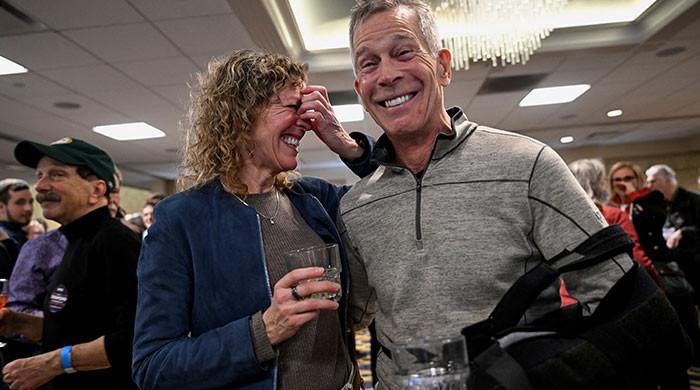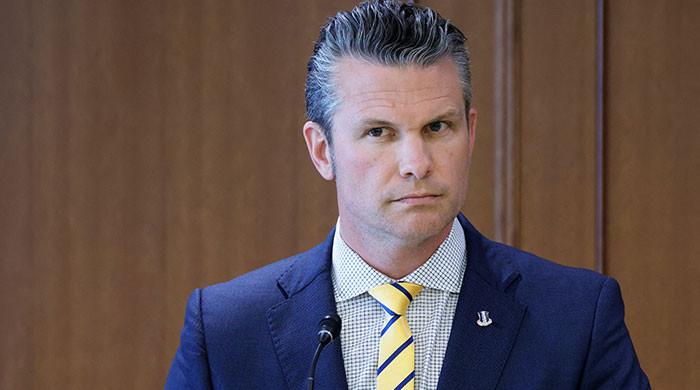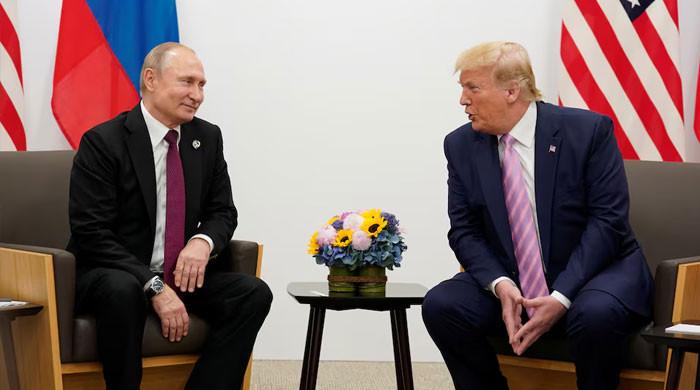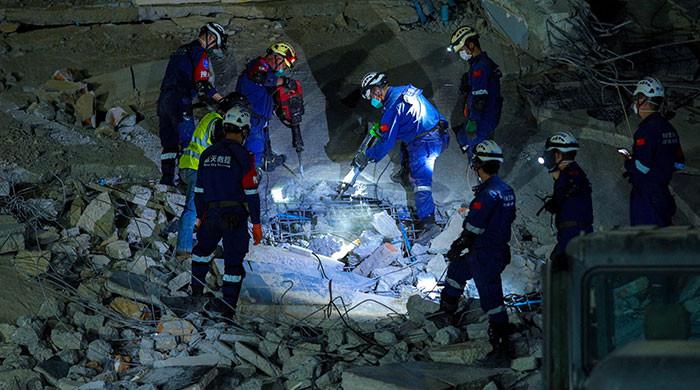US court throws out OBL driver conviction
WASHINGTON: A US court Tuesday threw out the conviction of Osama bin Laden's former driver over material support to terrorism, in a case that could potentially benefit other past prisoners at...
October 17, 2012
A top US court for the second time ruled in favor of claims by Salim Hamdan, who served as Osama bin Laden's personal chauffeur and has fought to clear his name even after being released and returned to his native Yemen.
The US Court of Appeals in Washington said that a law that listed material support for terrorism as a war crime -- approved in 2006 in response to Hamdan's case -- could not apply to him retroactively. US prosecutors instead had to rely on international law, which defines some forms of terrorism -- such as the intentional targeting of civilians -- as war crimes, the court said. "But the issue here is whether 'material support for terrorism' is an international-law war crime. The answer is no," Judge Brett Kavanaugh wrote for the court in an opinion with which the two other judges largely agreed. "Perhaps most telling, before this case, no person has ever been tried by an international-law war crimes tribunal for material support for terrorism," he wrote.
Kavanaugh -- who was appointed by former president George W. Bush and is generally considered a conservative -- also dismissed the argument that the Hamdan case was moot as he had already been released. All seven men who have been convicted by Guantanamo's military commission including the Australian David Hicks faced charges that included material support for terrorism. Adam Thurschwell, who served as Hamdan's lawyer, said that the court's decision could allow Hicks and others sentenced over material support to return to court, "Because time doesn't matter. They are in a position to come back to court and have their convictions overturned," Thurschwell said.
The American Civil Liberties Union renewed its call for the government to prosecute Guantanamo prisoners in civilian court if it has sufficient, legally obtained evidence. "This decision strikes the biggest blow yet against the legitimacy of the Guantanamo military commissions, which have for years now been trying people for a supposed war crime that in fact is not a war crime at all," said Zachary Katznelson, senior staff attorney for the group.
Separate cases underway at Guantanamo -- including the prosecution of Khalid Sheikh Mohammed, the self-proclaimed mastermind of the September 11, 2001 attacks -- revolve around more serious charges. According to prosecutors, Hamdan moved from Yemen to Afghanistan -- then coming under control of the hardline Taliban movement -- in 1996 and participated in a training camp of bin Laden's Al-Qaeda network.
Hamdan became a driver who transported weapons and other goods between Al-Qaeda sites in Afghanistan and later became bin Laden's personal driver and bodyguard, according to US court documents. Hamdan was captured in November 2001, just weeks after the United States and its allies opened a war in Afghanistan in response to the September 11 attacks carried out by Al-Qaeda. Prosecutors said Hamdan was detained in possession of two anti-aircraft missiles as he was driving toward the Taliban's hub of Kandahar. He was then taken to Guantanamo Bay, where the Bush administration set up a controversial jail to hold "enemy combatants" captured in Afghanistan and elsewhere. The former driver steadfastly denied participation in attacks and during his trial expressed grief for the deaths of innocent people.
His case went to the US Supreme Court, which in a 2006 decision -- Hamdan v. Rumsfeld, named after then defense secretary Donald Rumsfeld -- said that the procedures in place to try Hamdan violated the Geneva Conventions on the treatment of wartime prisoners.
In response to the case, Congress in 2006 approved the Military Commissions Act, signed by Bush that aimed to establish procedures more clearly. Hamdan was convicted and sentenced in August 2008 to 66 months but he was transferred soon afterward to Yemen due to the time he had already served.
President Barack Obama vowed upon taking office in 2009 to close the Guantanamo prison within a year, calling it a violation of US values. But he has failed to live up to his promise as lawmakers block moving prisoners to US soil and other countries balk at accepting former inmates.











